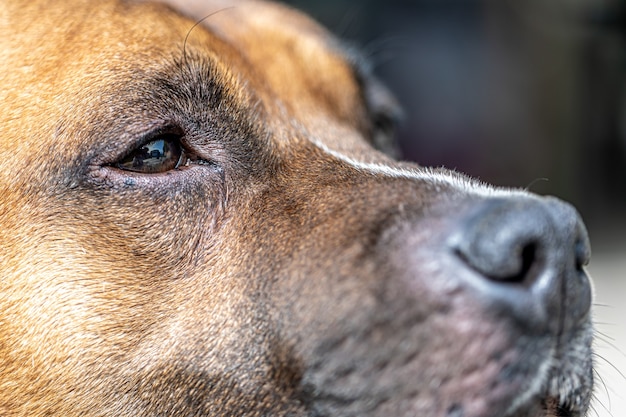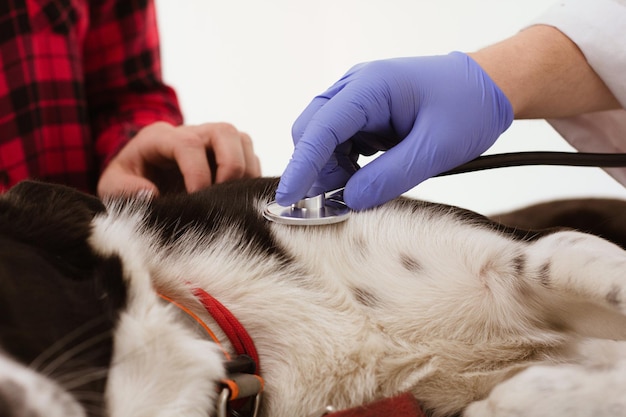How Pet Ultrasound Helps Diagnose Internal Conditions

How Pet Ultrasound Helps Diagnose Internal Conditions
When your beloved pet is showing signs of illness or discomfort, getting answers quickly and accurately is every pet owner's priority. At Companion Animal Clinic, conveniently located at 143 Dunn Street, Gilbert, IA 50105, our veterinary team uses advanced diagnostic tools to uncover the root of internal health concerns in dogs and cats. One of the most valuable tools we offer is pet ultrasound, a non-invasive imaging technique that allows us to visualize your pet's internal organs in real time.
In this guide, we'll walk you through how pet ultrasound works, why it's so important for diagnosing internal conditions, and what you can expect during your visit. We will also cover when a pet ultrasound in Gilbert, IA might be recommended for your dog or cat, the types of conditions it can help identify, and how our team at Companion Animal Clinic partners with you for lifelong pet health. If you've been searching for "pet diagnostics near me" or want to understand how diagnostic imaging for pets can make a difference in your pet's care, you're in the right place. For more details on our approach to veterinary imaging, you can read about our veterinary ultrasound services for pets.
Recognizing When Your Pet Needs Diagnostic Imaging
As a pet owner, you know your dog or cat better than anyone. Noticing subtle changes in their behavior or appearance can be the first step in catching health issues early. Diagnostic imaging for pets, such as ultrasound, is often recommended when your pet displays symptoms that suggest an internal problem.
Key signs that your pet may benefit from a pet ultrasound include persistent vomiting or diarrhea that does not resolve with dietary changes, unexplained weight loss even when eating normally, signs of abdominal discomfort such as restlessness or sensitivity when touched, and changes in urination or defecation habits. Additional symptoms like lethargy, loss of appetite, or visible swelling in the abdomen may also indicate the need for further investigation. In some cases, your veterinarian may recommend a pet ultrasound in Gilbert, IA if bloodwork or physical examination reveals abnormalities that cannot be explained by external observation alone.
Because many internal conditions can present with overlapping or vague symptoms, diagnostic imaging offers a safe way to look beneath the surface. If you are concerned about any unusual behaviors or symptoms, scheduling a visit for veterinary diagnostics in Gilbert, IA ensures your pet receives the most precise care possible.
Understanding the Causes of Internal Health Concerns in Pets
Internal health issues in pets can stem from a wide range of causes. Some conditions develop gradually as part of the aging process, while others may arise suddenly due to infection, injury, or exposure to toxins. Common conditions that lead to the need for diagnostic imaging for pets include organ dysfunctions such as liver or kidney disease, the presence of tumors or masses, gastrointestinal blockages, and inflammatory conditions. Additionally, underlying problems like bladder stones, reproductive organ issues, or heart abnormalities can be identified with detailed imaging.
Environmental factors specific to Gilbert, IA and surrounding communities, such as seasonal exposure to certain plants, parasites, or local wildlife, may also contribute to internal health problems. Our veterinarians are familiar with the unique risks in our region and use this knowledge to guide their diagnostic approach.
It is important to remember that not all internal issues are immediately life-threatening; however, early detection through tools like pet ultrasound provides the best chance for effective treatment and improved quality of life. For more comprehensive information about the types of internal conditions we diagnose, you can explore our internal medicine services to diagnose and treat internal conditions in pets.
How Pet Ultrasound Works and What to Expect
At Companion Animal Clinic, pet ultrasound is a cornerstone of our veterinary diagnostics in Gilbert, IA. Ultrasound uses high-frequency sound waves, which are completely painless and safe, to create live images of your pet’s internal organs. This allows our veterinary professionals to examine organs such as the liver, spleen, kidneys, bladder, stomach, intestines, and even the heart without surgery or exposure to radiation.
The procedure is gentle and typically does not require sedation, unless your pet is especially anxious or needs to remain perfectly still for detailed images. During the exam, a small amount of fur may be shaved from the area to be scanned to ensure the clearest images possible. A special gel is applied to your pet’s skin, and a handheld probe is moved over the area of interest. The real-time images are displayed on a monitor, allowing our veterinarians to assess organ appearance, detect abnormal growths, identify fluid accumulation, and evaluate blood flow.
Pet ultrasound in Gilbert, IA is often used in combination with other diagnostic tools, such as digital radiology and laboratory testing, to provide a complete picture of your pet’s health. Our approach is always tailored to your pet’s specific needs, and we prioritize your pet’s comfort throughout the process. If you are curious about other diagnostic options, visit our page on digital radiology services for advanced internal diagnostics in pets.
Treatment and Management Options Following Diagnostic Imaging
Once a pet ultrasound or other diagnostic imaging for pets has provided insights, the next steps depend on the findings. Treatment options at Companion Animal Clinic are designed to address your pet’s unique situation, whether the issue is an infection, inflammation, organ dysfunction, or something more complex.
For example, if a mass or tumor is detected, our veterinary team may recommend further testing, surgical removal, or medical management, depending on the location and nature of the growth. In cases of bladder stones or urinary tract issues, treatment might involve dietary adjustments, medications, or surgery. If an organ appears inflamed or enlarged, supportive care, medication, or ongoing monitoring may be required.
In every case, our focus is to involve you fully in your pet’s care plan. We discuss all available options, expected outcomes, and necessary follow-up so you can make informed decisions. The ability to visualize internal structures with pet ultrasound in Gilbert, IA allows us to tailor treatments and monitor progress more effectively, improving your pet’s chances of a full recovery. For a deeper look at our lab-based diagnostics and how they support treatment planning, read about our pet diagnostic laboratory services for comprehensive internal health evaluation.
Prevention and Home Care: Supporting Your Pet’s Internal Health
While not all internal conditions can be prevented, proactive care goes a long way in protecting your pet’s health. Regular veterinary checkups, including wellness exams, allow our team to detect subtle changes before they become more serious. Staying current with vaccinations, providing a balanced diet, maintaining a healthy weight, and monitoring your pet’s behavior are foundational steps.
At home, observe your pet for any changes in appetite, activity level, or bathroom habits. Early intervention is key; bringing your pet in for a checkup at the first sign of trouble gives us the best chance to catch and address issues before they progress. In Gilbert, IA, environmental factors such as seasonal allergies or exposure to specific plants can affect your pet’s internal health, so keep your home and yard pet-safe.
If your pet has a chronic condition identified by a prior ultrasound or diagnostic imaging, consistent medication administration, regular follow-up imaging, and open communication with our veterinarians are critical components of ongoing care. We are committed to partnering with you for preventive health and long-term management.
When to Seek Veterinary Care for Internal Health Concerns
Knowing when to seek professional help is essential for your pet’s well-being. Immediate veterinary care is necessary if your pet experiences severe vomiting or diarrhea, sudden collapse, difficulty breathing, visible abdominal swelling that progresses rapidly, or pain when touched. Even less urgent symptoms, such as gradual weight loss or chronic changes in appetite, should prompt a visit for pet diagnostics in Gilbert, IA.
Our veterinarians are equipped to assess your pet’s symptoms and determine if a pet ultrasound or other diagnostic imaging is appropriate. If you have been looking for a "vet near me" who offers advanced veterinary diagnostics in Gilbert, IA, Companion Animal Clinic is here to help. Do not hesitate to schedule an appointment if you are concerned about your pet’s internal health; early diagnosis can make a significant difference in outcomes.
Compassionate Care and Advanced Diagnostics at Companion Animal Clinic
Your pet’s health and comfort are our top priorities at Companion Animal Clinic in 143 Dunn Street, Gilbert, IA 50105. Our team of veterinarians is proud to serve Gilbert and the surrounding communities with state-of-the-art pet ultrasound and diagnostic imaging for pets. Whether your pet is facing a sudden illness or you are seeking peace of mind with preventive screenings, we are dedicated to providing thorough, individualized care.
If you are searching for a "vet near me" who can offer pet ultrasound in Gilbert, IA, or if you have questions about the diagnostic process, we invite you to schedule an appointment today. Call us at (515) 233-6689 or visit our website to learn more. To explore the full range of our imaging services, you can also review our veterinary ultrasound services for pets.
Remember, early detection is key to ensuring your pet’s long-term health and happiness. Let our veterinary team at Companion Animal Clinic be your trusted partner in pet care—providing quality veterinary services near me and exceptional support every step of the way.
This blog is intended for informational purposes only and does not replace professional veterinary advice. If you have concerns about your pet’s health, please contact your veterinarian promptly for a thorough evaluation and personalized recommendations.
















